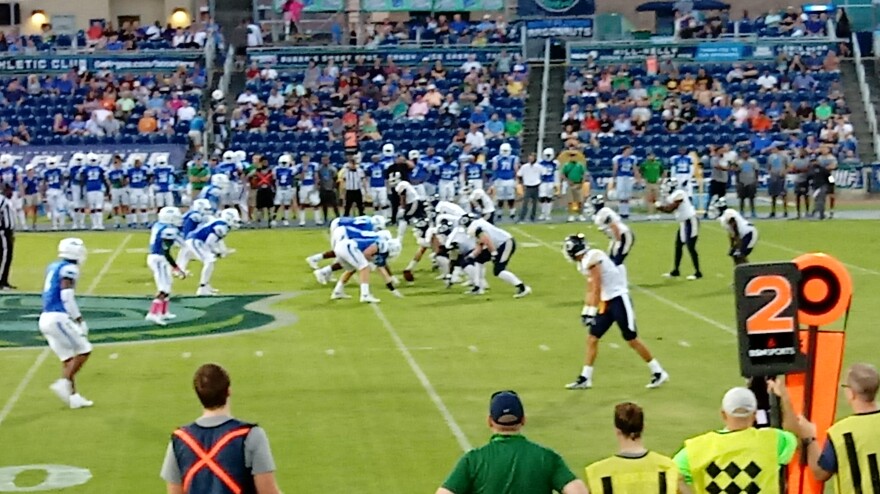One year after becoming Florida law, the game plan for compensating college athletes has been finalized by the state’s university system Board of Governors.
After the 2020 legislative session, Gov. Ron DeSantis signed a measure that permits student-athletes to profit from their names, images, and likenesses. The law took effect on July 1 of this year.
“If you have a situation where you have some of the great athletes — particularly in sports like football and basketball — whose name, image, and likeness is being used to make millions and millions of dollars,” said DeSantis. “And then they don’t even have the opportunity to get any of that; there’s something fundamentally unfair for that.”
In a unanimous decision last month, the U.S. Supreme Court ruled against the NCAA. The court’s decision allows college athletes to receive compensation.
“Just like anything, there’s positives and negatives, and we’re waiting to see how this rolls out and plays out; but [it] could be one of the most significant changes in college sports that we’ve had in a long time,” said Dave Scott, athletics director at the University of West Florida.
“I think it’s a great opportunity for student-athletes to get some extra income and do things that they weren’t normally allowed to do," he said. “It’s also a slippery slope and that you’ve opened the doors because there’s not much guidelines or rules to follow yet as far as how this plays out.”
Under the regulations, athletes will be able to hire agents and be required to disclose to the universities any contracts for compensation. The law will require universities to provide a “financial literacy and life skills workshop” for athletes.

Much of the attention on this issue has been focused on athletes at Division-1; but the rule also includes smaller colleges, such as those in Division II – including UWF. And Scott emphasizes that not all opportunities will be created equal.
“Because you’re going to have student-athletes that have an opportunity to do some things, and you’re going to have other student-athletes that might not get that opportunity,” said Scott. “So at some point, you’re going to come back around and, like, ‘OK, from Title IX [equity between men’s and women’s athletics], is this effective or are we going to have to do some things to play out?’ Because left to the common marketplace, certain sports will have more of an advantage than others.”
Grant-in-aid scholarships to student-athletes cannot be revoked or reduced as a result of student-athlete earnings or hiring an agent to handle such income. But instead of seeing your favorite college player as a TV pitchman for cars, shoes, or restaurants, Scott believes the involvement will be mostly on social media.
“You have influencers and you have a certain following and be able to impact locally that following; student-athletes with large social media followings,” said Scott. “I’ve seen everything from $50 sponsorships to T-shirts to in-kind shoes. And then how do you balance that with other student-athletes that are not going to get those opportunities.”
Some conflicts could arise. For instance, what if a football program has Nike as its shoe supplier and another company offers shoe contracts to individual players?
“From our end, if we have a sponsorship deal, that would have to be honored,” Scott said. “We’re meeting internally on how we roll out policies to be able to educate our student-athletes. And hopefully part of that is we still create opportunities for our sponsors to be honored through our deals because our budget depends on that.”
And despite the high court’s ruling in favor, Scott says there remains a lot of gray area to be cleared up.
“You have the NCAA saying now you can follow your state’s rules, but if you’re an international student-athlete you still have to do the things to maintain your visa -- which means you can’t work off-campus, as is my understanding,” he said. “It won’t impact your athletic financial aid, but if you’re a need-based student-athlete it could impact your financial aid award.”
Meanwhile, Florida State University has begun educating its athletes on the new law. Named “Apex,” the program is billed as a “comprehensive, multi-tiered program designed to empower student-athletes to capitalize” on their ability to get compensated.

